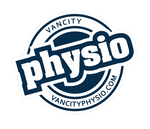If you’ve torn your ACL (anterior cruciate ligament), you might experience several symptoms that a physiotherapist would focus on when assessing and treating the injury. Here are some key symptoms related to an ACL tear that a physiotherapist would pay attention to:
-
Swelling: Significant swelling around the knee is common, often occurring within a few hours of the injury.
-
Pain: Sharp or aching pain in the knee, especially during movement or weight-bearing activities.
-
Instability: A feeling of the knee “giving way” or instability, particularly when walking, running, or pivoting.
-
Limited Range of Motion: Difficulty bending or straightening the knee fully due to pain or swelling.
-
Tenderness: Tenderness along the joint line or around the knee, which can be identified through physical examination.
-
Difficulty with Weight-Bearing: Trouble putting weight on the affected leg or walking without a limp.
-
Muscle Weakness: Weakness in the muscles around the knee and thigh, as the body compensates for the lack of stability.
-
Bruising: Discoloration around the knee, though this is less common and might not always be present.
In physiotherapy, treatment would focus on reducing swelling and pain, restoring range of motion, strengthening the muscles around the knee, and improving functional stability and movement patterns. The physio would likely use a combination of manual therapy, exercises, and possibly modalities like ice or heat to address these symptoms and help you recover.
Recory Time:
The recovery time for an ACL (anterior cruciate ligament) injury varies depending on several factors, including the severity of the tear, the treatment method chosen, and the individual’s overall health and adherence to rehabilitation. Here’s a general overview:
-
Conservative Treatment (Non-Surgical)
- Duration: 3 to 6 months
- When Used: For partial tears or for individuals who do not require high levels of activity.
- Focus: Physical therapy to strengthen the muscles around the knee and improve stability. The goal is to return to normal activities without surgery.
-
Surgical Reconstruction
-
Initial Recovery: 6 to 12 weeks
- Focus: Pain and swelling management, regaining range of motion, and beginning gentle strengthening exercises.
-
Rehabilitation: 6 to 12 months
- Early Phase (0-6 weeks): Focus on reducing swelling, managing pain, and beginning range of motion exercises.
- Intermediate Phase (6-12 weeks): Progressive strengthening exercises, improving knee stability, and beginning functional activities.
- Advanced Phase (3-6 months): More intensive strength training, sport-specific drills, and agility training.
- Return to Full Activity (6-12 months): Gradual return to high-impact sports and activities, with continued strengthening and stability work.
-
Initial Recovery: 6 to 12 weeks
-
Full Recovery
- Duration: 6 to 12 months
- Factors: The total recovery time depends on factors like adherence to rehabilitation protocols, the individual’s physical condition, and the level of activity they wish to return to.
Each case is unique, so it’s essential to work closely with a healthcare provider, including a physiotherapist and orthopedic specialist, to create a personalized recovery plan and monitor progress.
Seeing a physiotherapist for an ACL tear can be crucial at various stages of the injury and recovery process, so why not start today!
Book an Appointment at VanCIty Physio.

